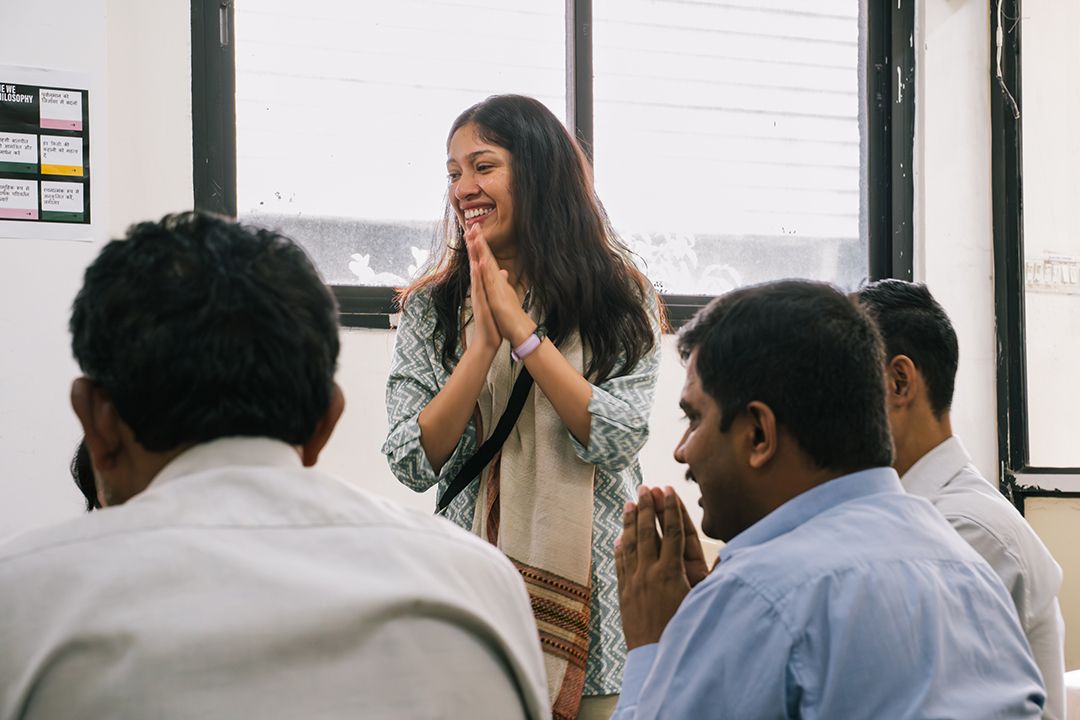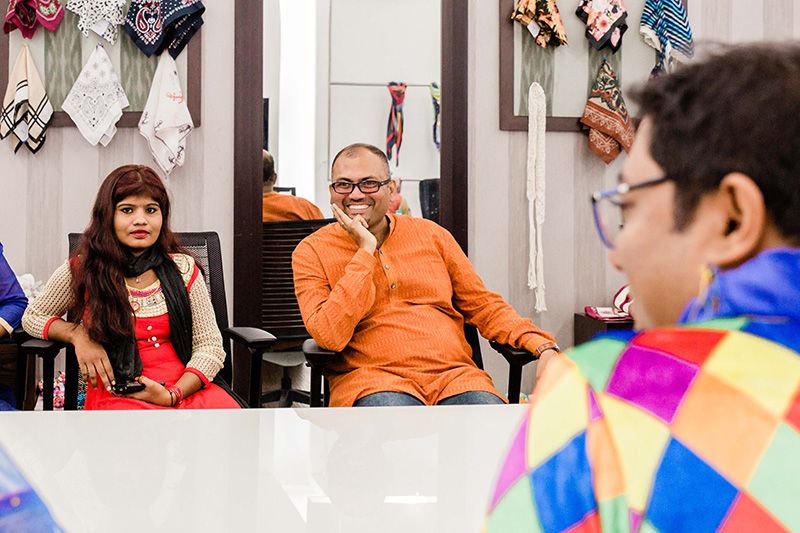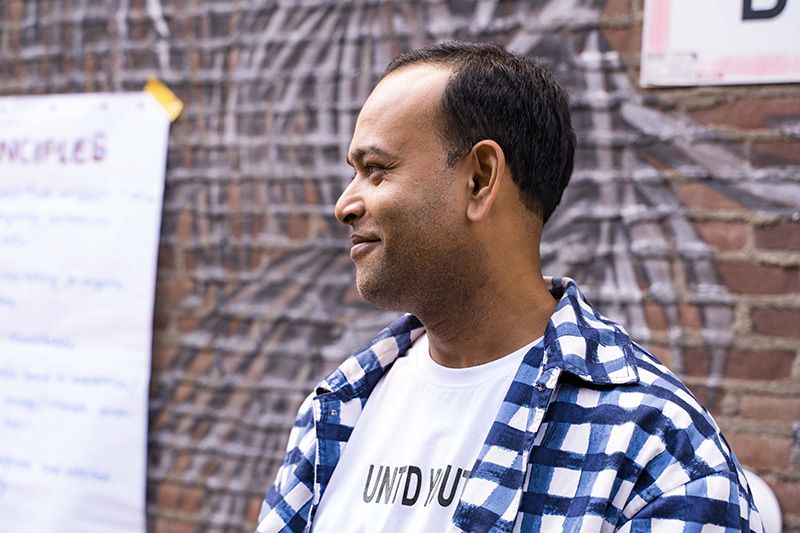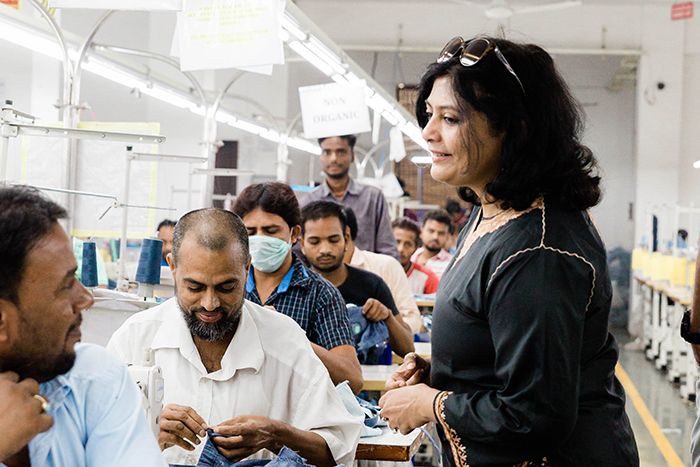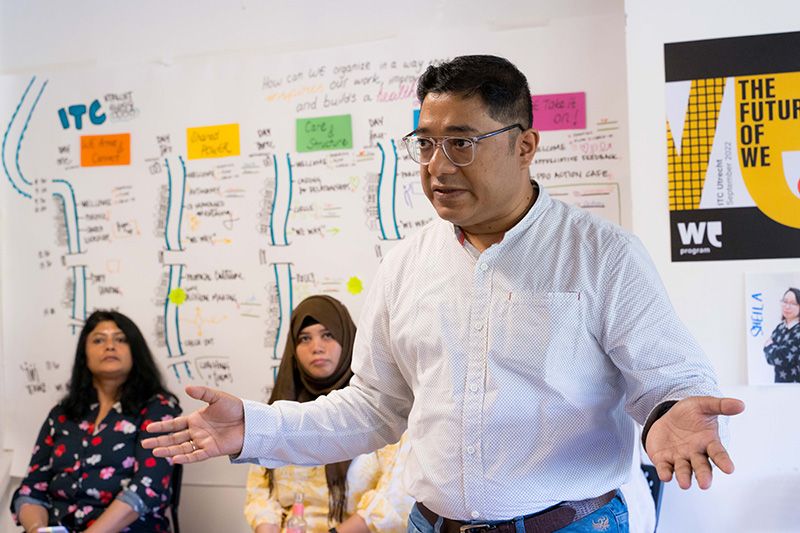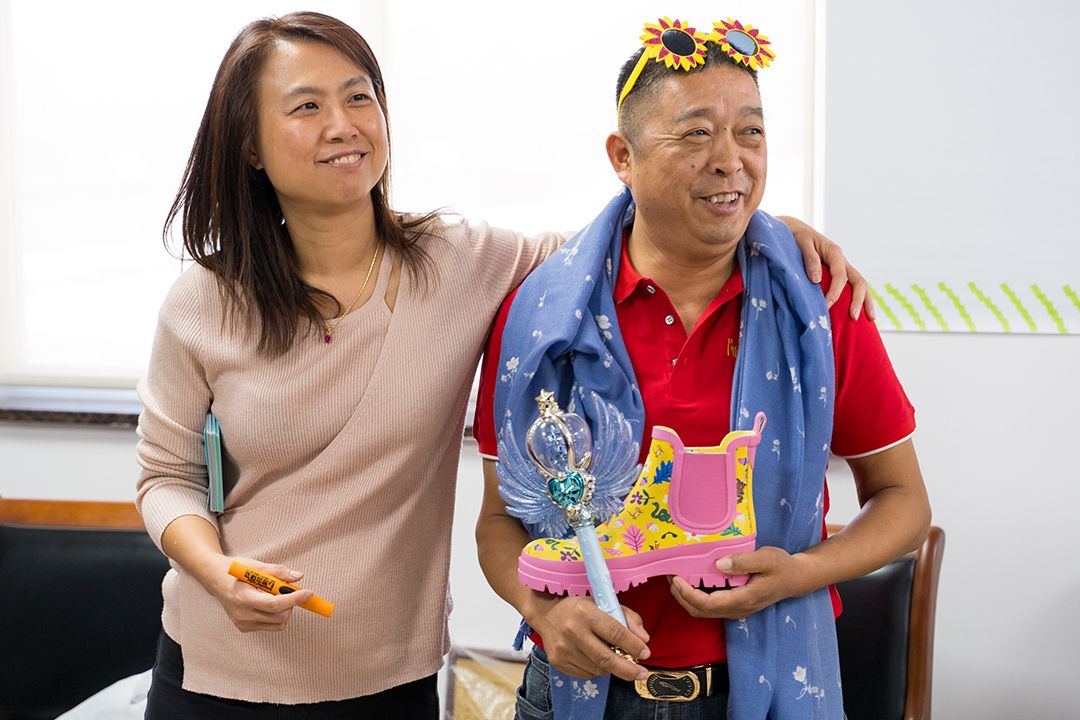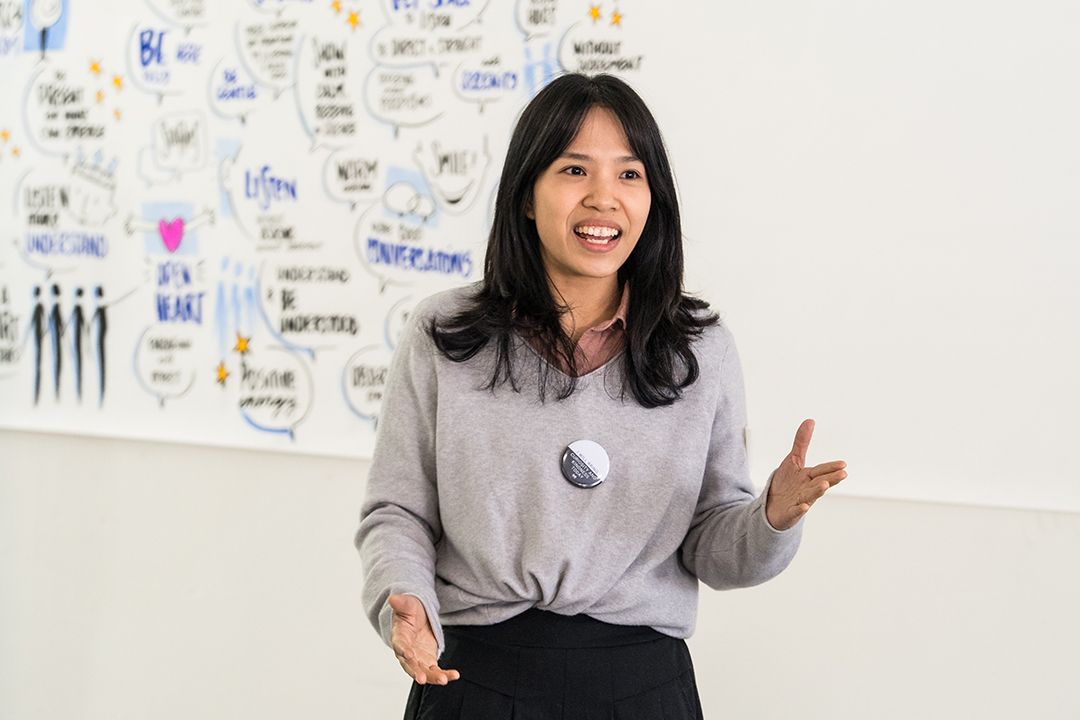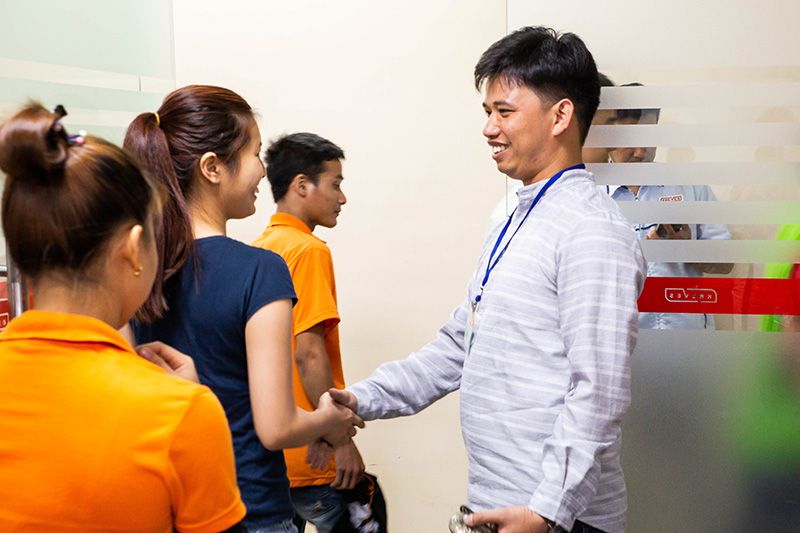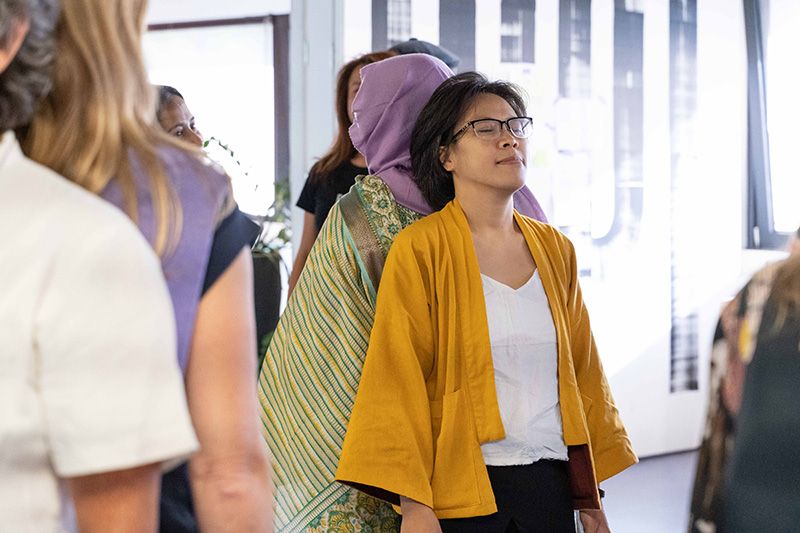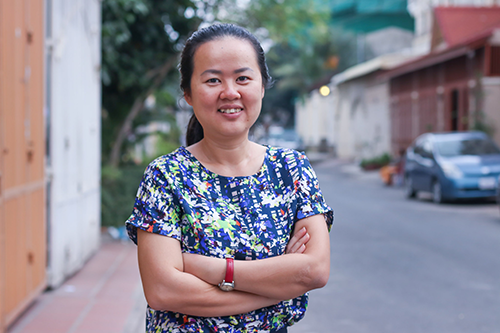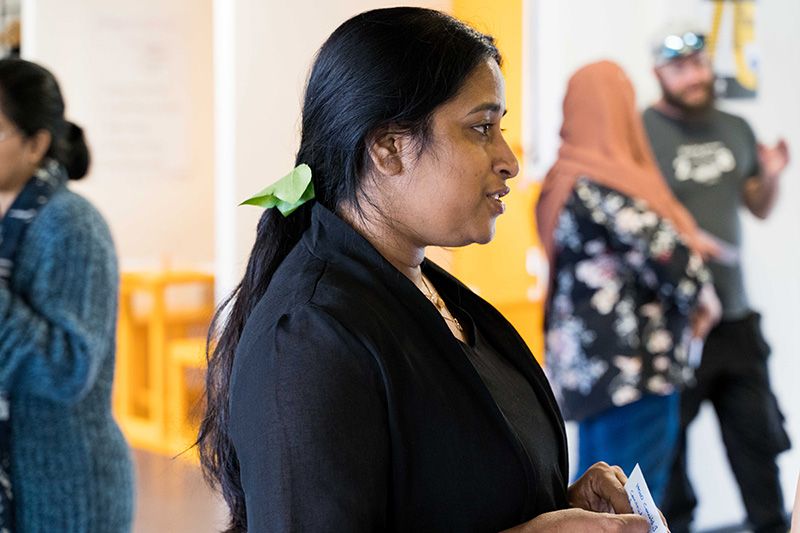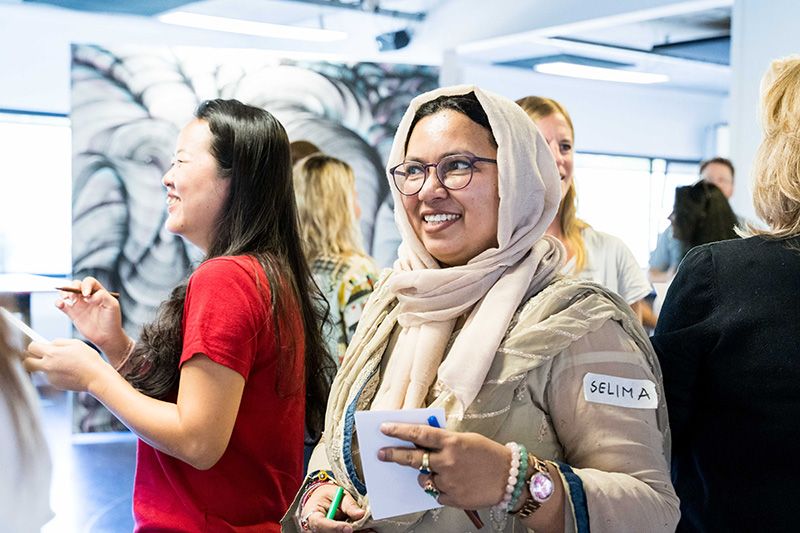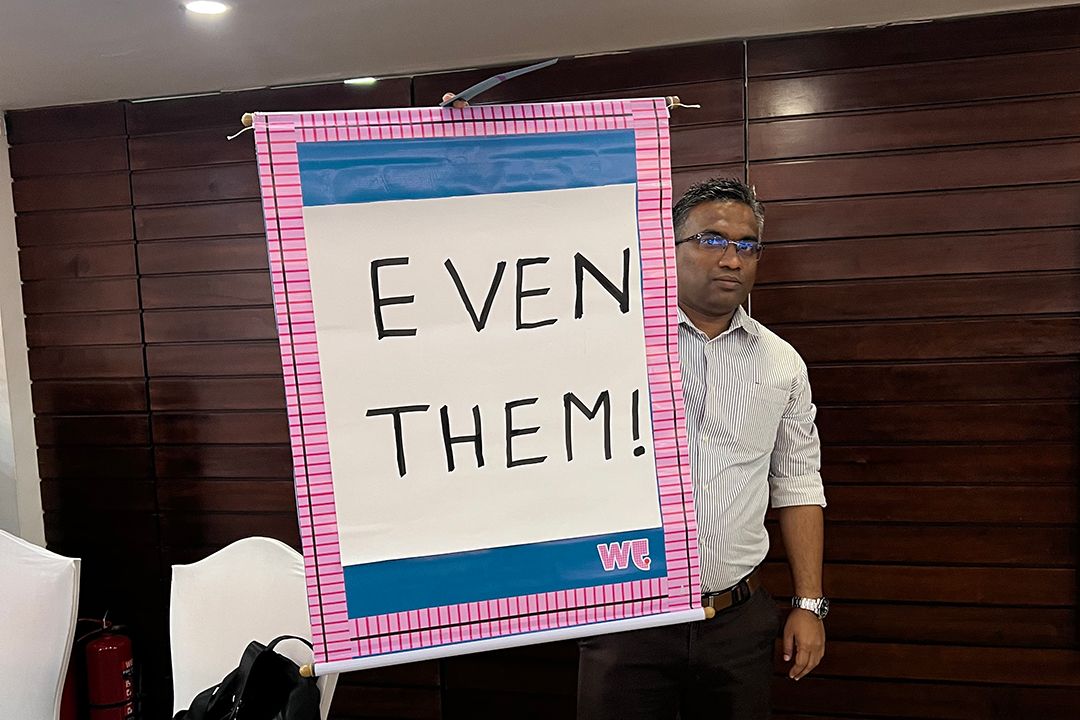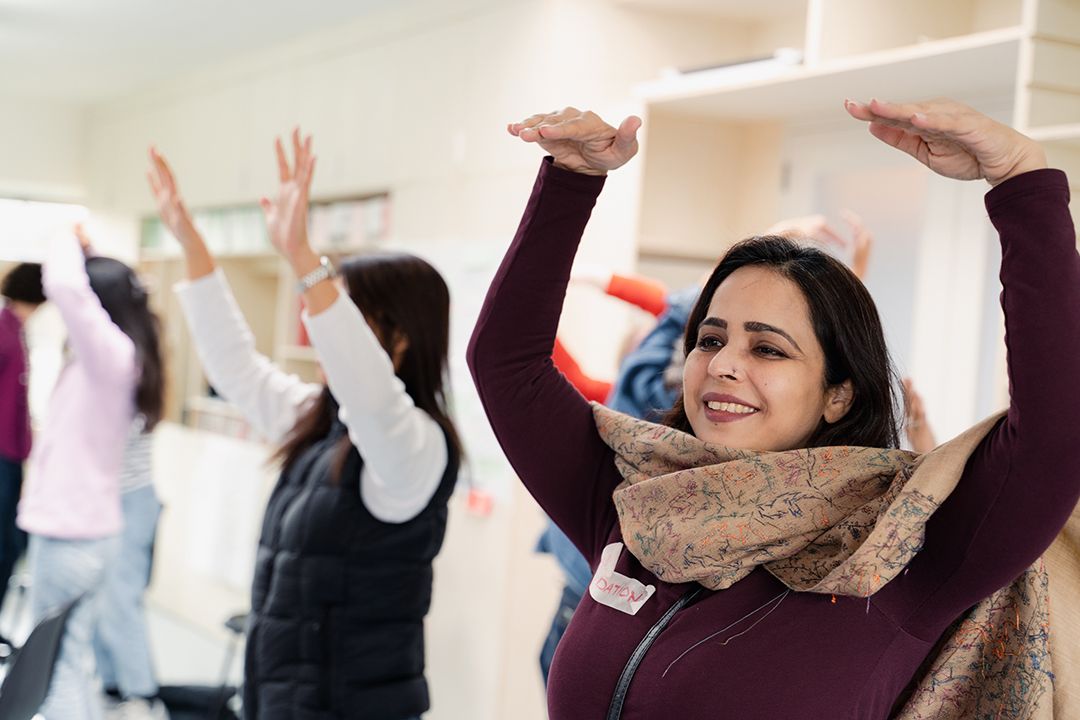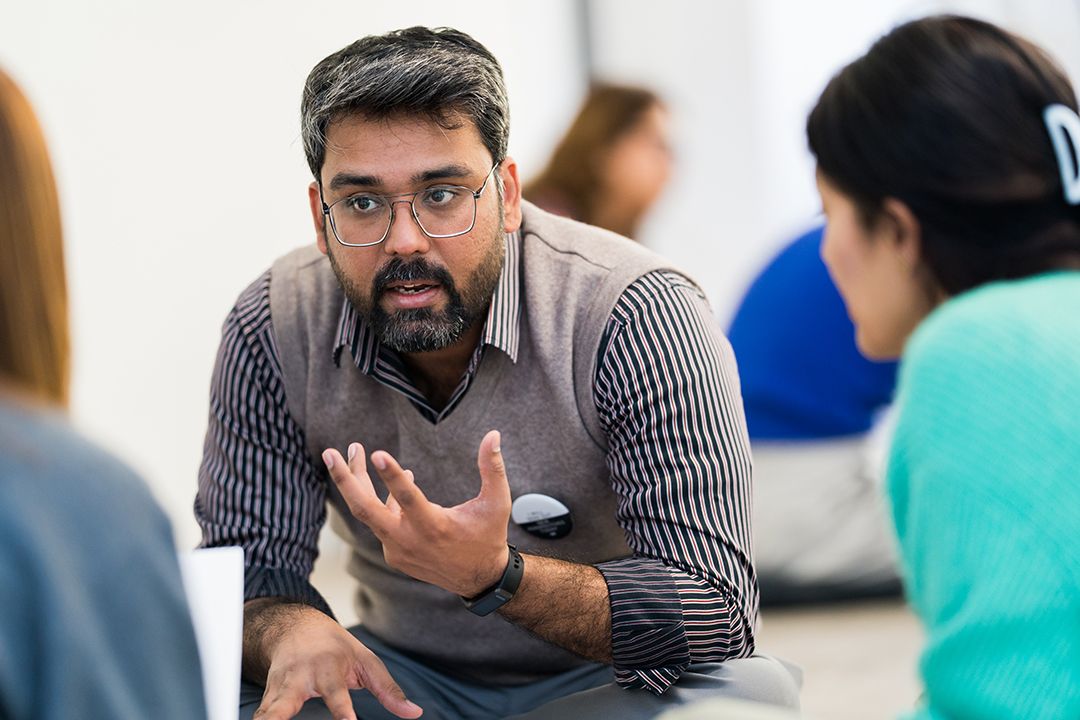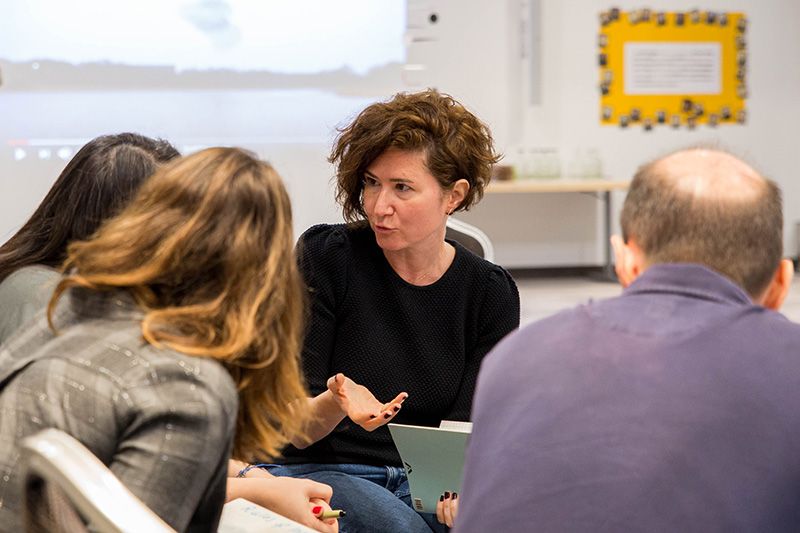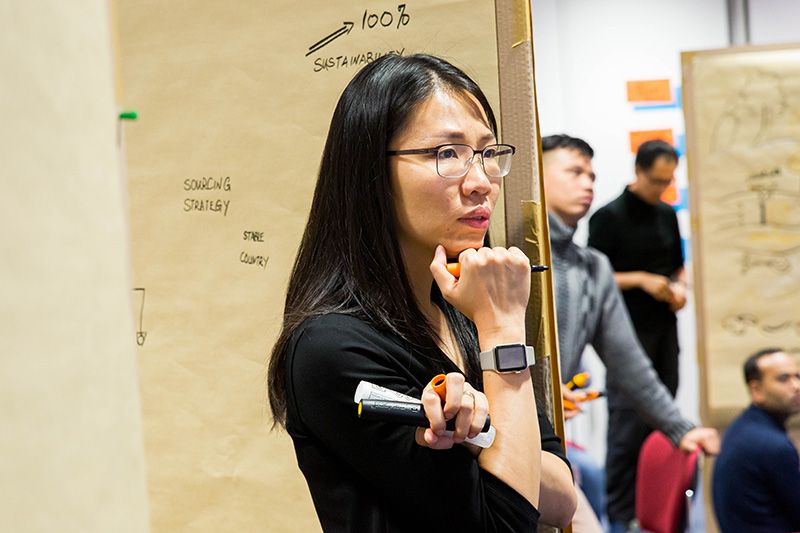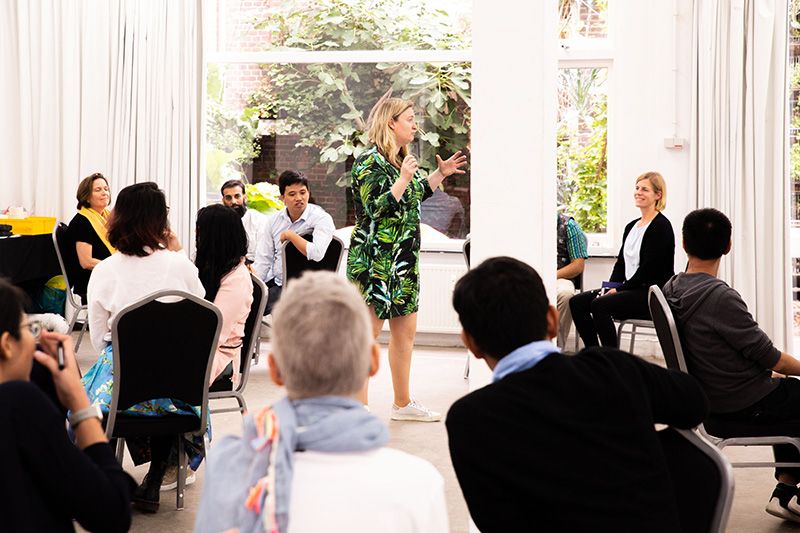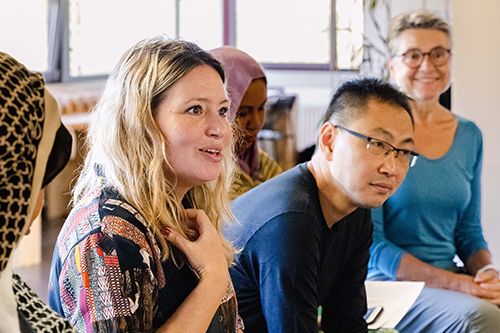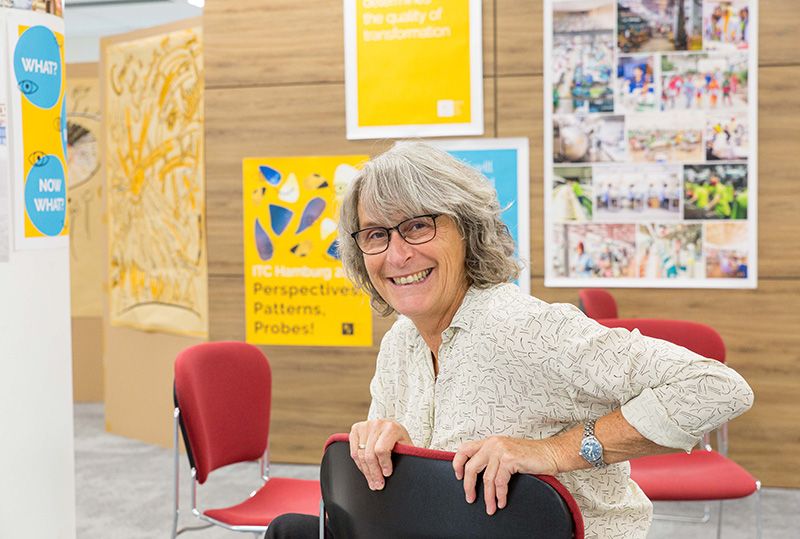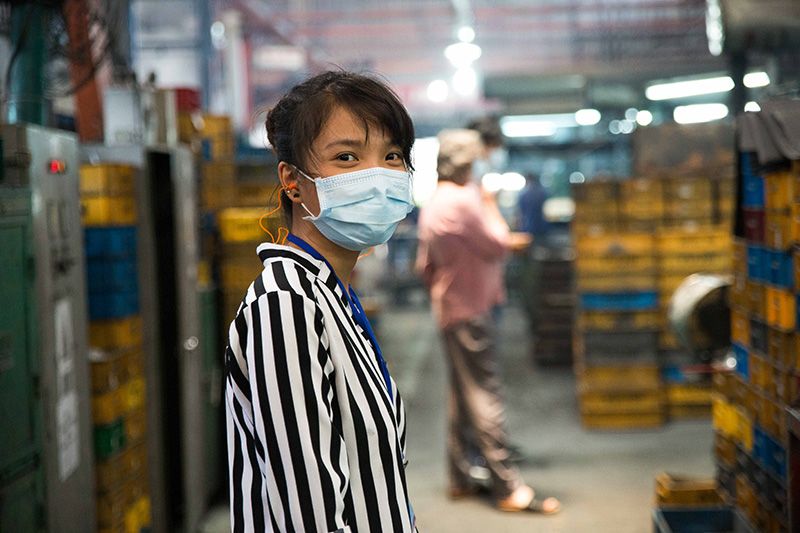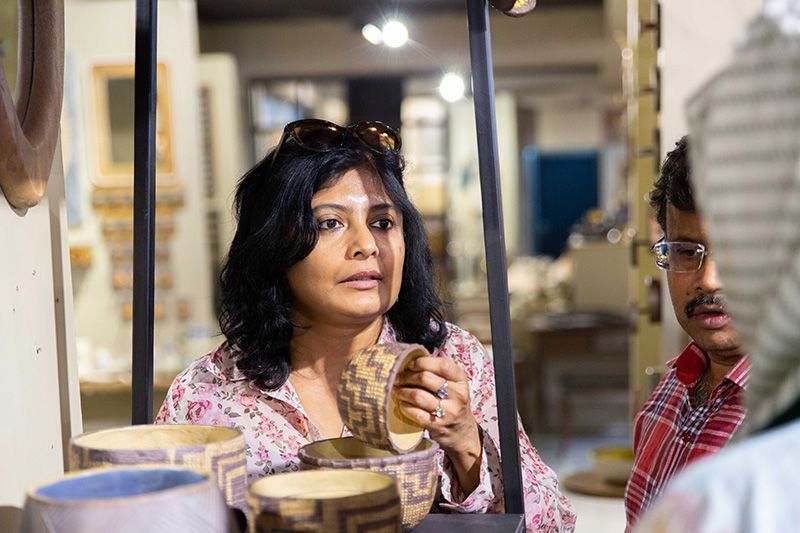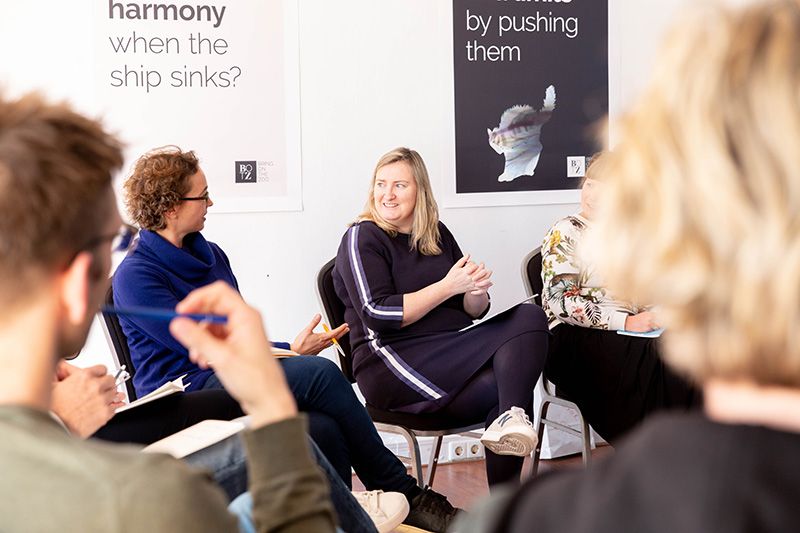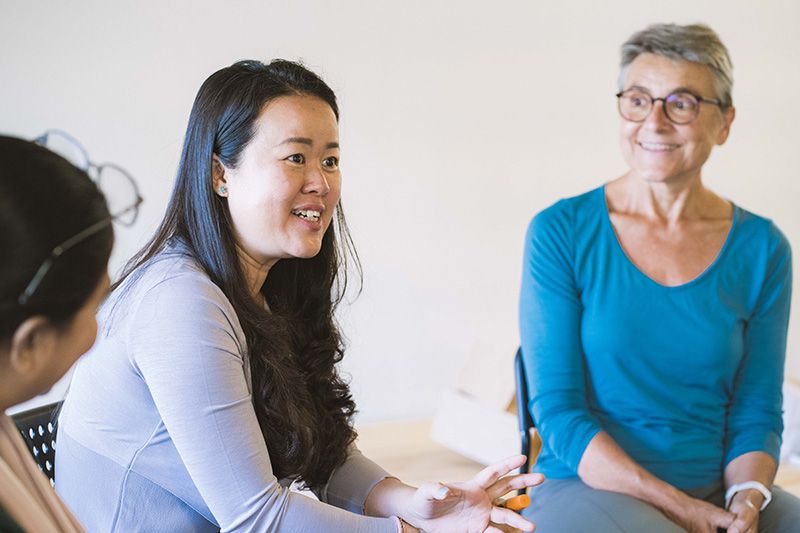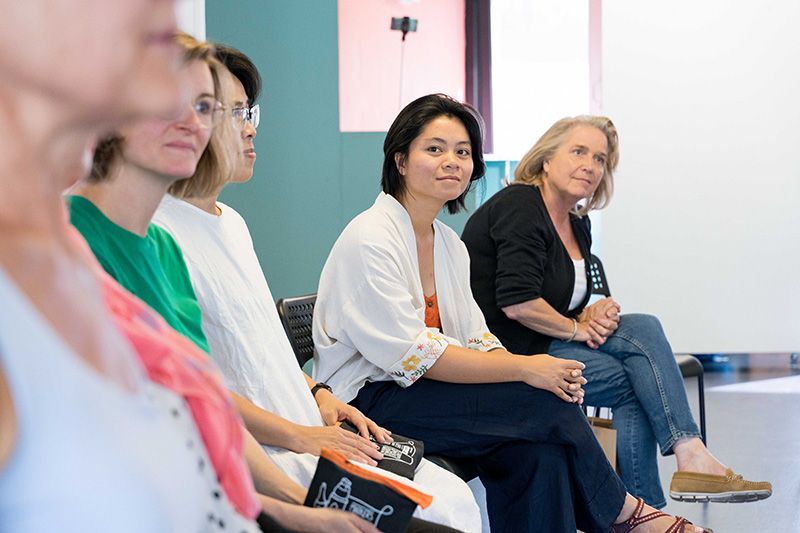

WHO WE ARE
WE
COMMUNITY
WE is not for everyone, but it may be for you.
‘I DIDN’T STAND MUCH OF A CHANCE AT SCHOOL, I FELT LIKE A NOBODY’
|
|
|
|||||
| 00:00 / 00:00 (-00:00) | ||||||
|
|
||||||
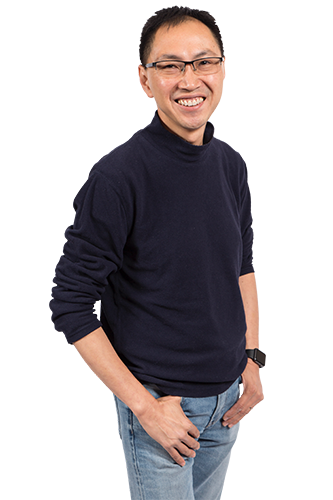
Anthony Kan
“When I was a kid, I felt like a nobody. At school I got a zero in English dictation quite often. Since all the other subjects were in English and all exams were written, I didn’t stand much of a chance. At home, I didn’t feel much better either. Actually, I felt like I was adopted. In high school there were two people who really built up my confidence. My Chinese language teacher told me: ‘Your English is lousy, but your Chinese is really good. You write beautiful essays.’ He even sent two of my stories to a publisher. At vocational school, my student counsellor picked me to train as a peer counsellor for students, which was a life changing experience. I learned a lot of basic counselling skills that I still apply now. Since many years I have been doing voluntary work, training school teachers in Hong Kong and mainland China to develop student activities aimed at the personal growth of children. My work in the factories has the same drive. When workers start to grow and understand their rights and develop their sense of values… When they start feeling that as humans they have the same worth as the managers… then I know: this is what I am supposed to be doing with my life.”
‘Knowledge does not reside in the individual; it resides in the collective’
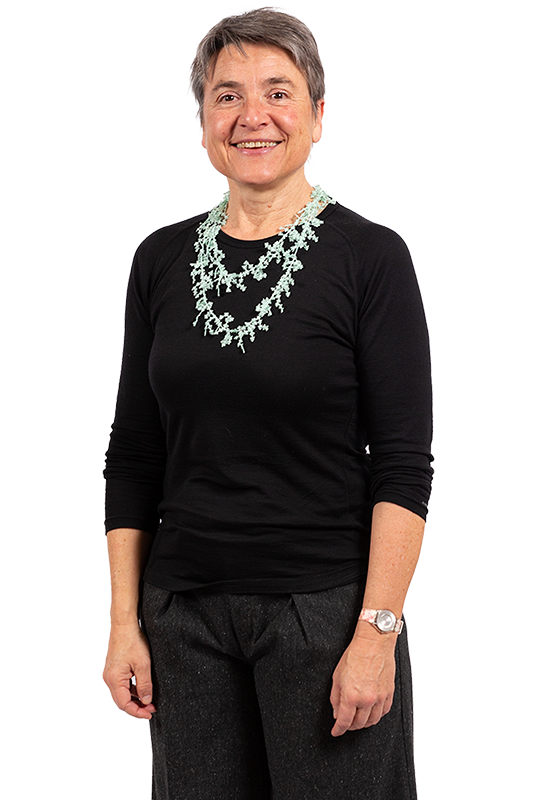
Caroline Rennie
‘They told me they sometimes felt like machines’

Chenyan Liu
“I grew up in Shenzhen, near Hong Kong. What was a small village in those days is now China’s biggest city: it has 66 million inhabitants. Throughout my childhood I was surrounded by an ever-growing number of factories and their migrant workers. I didn’t have a clue though about their lives or working conditions. My older cousins, who started working for foreign investors in those days, formed my first impression of ‘workers’: bright, young people with a high income, who were very modern and dressed well. It was not until I started at my first job at a local NGO that I came in contact with the real ‘workers’. For my research on labour relationship topics I interviewed managers and migrant workers in factories. Most of the workers I met were young – around twenty – and I noticed they were sad, tired and not enjoying their lives. Day in, day out, they had to work long hours. They didn’t see their parents anymore and it was hardly possible for them to have a social life, since they only had a couple of hours of spare time each month. Their managers and co-workers were the only people they saw on a regular basis. They told me they sometimes felt like machines. I became very sad doing this kind of work because I felt so powerless to do something about their situation. I started looking for a job where I could have more impact on the supply chain. My next job in CSR gave me more influence on production processes, but I did not have contact with the workers. It was not until WE that I found the right balance between being in touch with workers and being able to bring about change.”
‘Personal impact is an inseparable part of social impact’
|
|
|
|||||
| 00:00 / 00:00 (-00:00) | ||||||
|
|
||||||

Ege Erim
“In this kind of work, where you’re working with people, you never know what’s going to happen. And this ‘not knowing’ boosts my adrenalin. I feel alive doing this work! When we go to a factory, we have an agenda of course. But I always remind myself it is my agenda, not necessarily their agenda. What does the factory need? Where is the potential for growth? It’s great if we can make a difference and see results. But it does not happen overnight, it’s a constant battle. Of course, I want factories to respect human rights and have more open and inclusive conversations. But that’s not something you accomplish within a couple of visits. Me pushing people in a direction they’re not ready to go yet, won’t neces- sarily make the process faster. So, I don’t get depressed when things don’t work out the way we plan. I just take a deep breath and think: maybe next time. Let’s come up with another plan and try something new. I’m not an activist. I’m not politically involved. I’m not even an idealist. I think I’m just curious and compassionate about human nature. What gives me energy is the belief that anyone can change his or her life story. When I see the curiosity in workers’ eyes, when I notice they grasp human rights as a vital component of being a human, it makes me optimistic about the future. A factory is not just four walls and some machines. It’s the people who make the factory. The minor decisions they make, their daily routines, the way they treat each other... all those things come together and ‘make’ the factory. Therefore, I believe personal impact is an inseparable part of social impact.”
‘For the first time workers are being listened to’
|
|
|
|||||
| 00:00 / 00:00 (-00:00) | ||||||
|
|
||||||
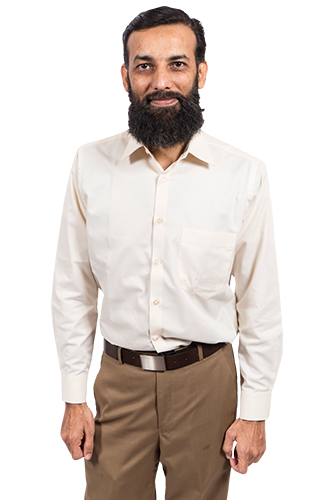
Haider Sagheer
“I’ve been engaged in more than fifty factories in Pakistan since 2004, working to improve productivity. In many cases good results were achieved in the pilot phase. But I noticed they could not be sustained afterwards. When I joined GIZ, the German organisation for international co-operation, in 2014 as technical advisor I learned about the dialogue approach. I realized the critical importance of engaging frontline workers, a missing link in my previous assignments. In the garment industry in Pakistan workers are not employees, they are contractors. When a huge order is about to come in, senior managers tell their middle managers: go get people. The managers only think of them as a source of production, not as human beings. And they certainly don’t think of them as being of any help in improving productivity or business. Nor does it occur to the workers that they could be involved. This is why dialogue has such impact. For the first time, the workers are being listened to. And the managers actually implement their good ideas. What’s more: the managers then start to see them as assets. They start thinking: I should employ them. Then I will benefit even more from their ideas. So, unleashing the human potential through dialogue is a powerful approach to bring change both at an organisational, individual, and societal level. I strongly believe that listening to the workers’ perspectives with deep empathy can bring lasting results. It is a real drive for me to be in WE.”
‘WE has given me some of the biggest life lessons a person may ever get’
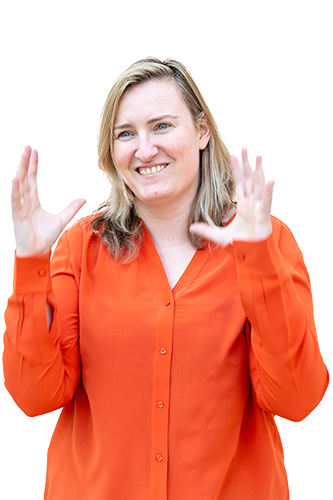
Helen Kuyper
“My mother says I was delivered at birth with a small note, saying: she will try to do good things, don’t get in her way. The whole idea that where you are born more or less determines the rest of you life, is horrifyingly unfair to me. Since trading places is not an option, the least I can do is spend my time in a good way. If you have to work for a living, it better be something meaningful. I don’t think small. I want to work on important things with as many people in as many places as possible. If you can work towards change with two people, you can also do that with twenty. And if you can do it with twenty, you might as well do it with two hundred, two thousand or whatever it takes to change this industry. The WE program has changed me in a million different ways. Working with people from so many countries, from different cultures, with different backgrounds, has given me some of the biggest life lessons a person may ever get. I’m allowed to do this work and not once in a while, but every day. WE gives me the opportunity to implement everything I learn – from colleagues, from our facilitators, from the people I meet in factories - to get a little closer to good working conditions. I’m always focused on the bigger picture, on the possible next step, to stay ahead of where we’re now or where we’re moving to. People often think I do this work because I want to change things over there, but that’s not what I do. I work there because I want to change things here. Our Western European societies are built on making money off of the back of other people’s suffering. We can only truly change things if we are willing to see the consequences of our actions here.”
‘Working the land, I see a lot of similarities with WE’
|
|
|
|||||
| 00:00 / 00:00 (-00:00) | ||||||
|
|
||||||

Huan Nguyen Doan
“I love being a facilitator, but I’ve grown tired of living in the city. Apart from working, what is there to do? The lifestyle is too fast for me. I’ve come to realise I need time to enjoy simple things, I need space for reflection. After I left WE, I met some friends who asked me to join them and start a farm. I moved to the mountains with them, we bought land together and I’ve made my first steps in becoming a farmer. At the moment I lead two lives. I work at the farm for one month and then I have to move to the city again to work for one month to earn money. I cannot make a living with farming yet. I see a lot of young people moving to the countryside though. They are inspired to farm in a new way, by respecting nature and protecting the land. This lifestyle makes me feel connected with myself, with the people I work with and with the food I eat. Working the land, I see a lot of similarities with WE. We’ve built a community of learning here, sharing knowledge with each other. When farming friends come over, we can ask them about the coffee trees they are growing and their experience with different crops. People are not rushed here. Farming requires a lot of patience. You have to work with nature and with what is there. As an organic farmer you cannot push things to go faster. You prepare the space and create the conditions for things to grow. That also reminds me of my work in WE. There is a lot of space and a lot of patience for change to happen. Within the WE community, I have learned to design, create, take ownership and be responsible together. This has changed me deeply. When I work with people now, with my neighbours, with the people in the farming community, I don’t give people tasks or tell them what to do. This work is also about creating a community and building ownership.”
‘This is not just my job, this is who I am’
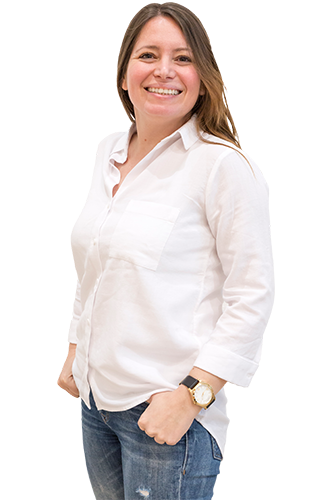
Idil Ander
“I have this strong childhood memory. There was a kid in my class who was constantly bullied and verbally abused by the others. Not by me, I did not join them. I didn’t do anything and felt smug about it. I’m alright, said to myself. Because I thought that was good enough. Until our teacher made this awakening speech in front of the class and said that none of this was okay. I was doing something ‘not right’ by doing nothing. This memory has travelled with me to where I’m now, working on human rights and decent working conditions.
The moment I realised that business actually is responsible for the good of society and for the good of the landscape it operates in, I knew what I should be working on. I have been a consultant working on sustainability for the past fifteen years, focusing on strategy building, stakeholder engagement and supply chain sustainability. Through WE program, I realized the limitations of the consulting role. I have transformed not just my passion, but also my perspective while mastering many different tools and practices to understand and work with complexity. Since WE, I have been consciously designing interventions, tailoring social programs for impact and facilitating to co-create, co-decide and collaborate.
We are all equal. For me, this is not an abstraction. I truly feel it. From time to time, I see people struggling for social impact, because they ‘know’ it, but they don’t feel it. They act from the mind, not from the heart. There’s a difference. When you have to think about it first, it becomes a concept, you act from a moral level. Whereas for social workers like me, it’s a given thing: we really all are equal. It’s the place I act from, where I find my power. This is what I aspire to share with others; to be in the places with most potential and inviting everyone to listen with hearts wide open. That’s why doing this work feels so right for me. This is not just my job, this is who I am.”
‘I realised people come first to me’
|
|
|
|||||
| 00:00 / 00:00 (-00:00) | ||||||
|
|
||||||
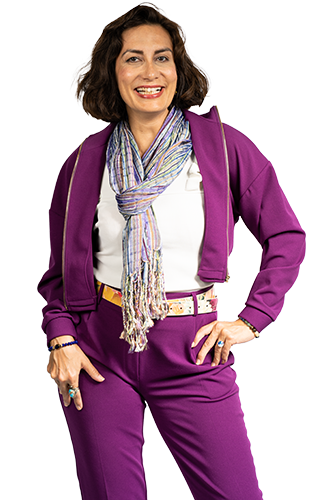
Ilayda Pasiner
“After several high-flying, stressful jobs it dawned on me I was trying to achieve something that I didn't really want. I had worked for international companies in Europe and Asia until my early forties and I had to conclude I didn't like to be at C-level. It comes with a cost. You need to step over others. You need to break hearts for the sake of the business. I realised people come first to me. Addressing their needs and helping them to have their voices heard motivated me much more than the business itself or the financial benefits. I’ve always been a people’s person. My energy blossoms when I communicate on a personal level. I recognized more and more that I wanted to do something that would touch lives. With that in mind I quit my well-paid job and a new version of myself started to emerge. Tango was part of my journey. I’ve been a passionate dancer throughout my life, but I found tango to be transformational. It has to do with dialogue, communication, trust, and empathy. You have to read and follow the energy and the intentions of the person who is close to you. A friend of mine from tango circles happened to be a WE facilitator. When Ege told me about her work, that it was about human rights and betterment of working conditions, my heart started to pound. ‘If there’s an opening at some point, please consider me,’ I told her. You know what they say about fate: that when you are ready, opportunity knocks at your door. There’s a saying that luck smiles at those who are well prepared. I think I was mentally and heartfully prepared for this work. Our last round of Factory Visits confirmed to me that WE is where I belong. We asked participants to design posters emphasizing ‘no tolerance to harassment’. Later that day, their Poster Parade through the factory was welcomed with applause and praise. For me, that shows that even the most difficult change is possible if there is a real intention behind it. One intervention can be enough to plant the seeds of hope.”
‘I accept what’s there and make the most of it’
|
|
|
|||||
| 00:00 / 00:00 (-00:00) | ||||||
|
|
||||||

Jai Chandrashekar
“During a Factory Visit one of the female workers opened up and shared her story about sexual harassment. Shortly afterwards, she reached out and told us she was accused of stealing a piece of cloth from the factory. They had forced her to sign a letter admitting the theft and had asked her to resign. We requested the factory management if they could bring everyone involved in this case together during our next visit: the accused worker, co-workers, security guard and management. And then we asked them to talk, listen to each other and try to understand each other’s story. “Will you be the judge?” they asked us. And our answer was: “No! Our role is to make you talk to each other. Talk about what happened. How it affected you. And then talk about what you want to do about it.” It’s moments like these that show why this program makes so much sense. If we are not present, what misses in the end is the respectful way of listening to each other and the dialogue process that follows. It is our responsibility to create space for that and make sure everyone is heard. In my work as a consultant on leadership development and behavioural change, I’m used to walk into a room filled with participants who are eager to learn and ready to go. In the WE program I have to get them into the room and get them going. These past years I’ve learned to deal with the surprises and frustrations that are part of factory reality. I’m not focussing anymore on what’s not working. I accept what’s there and make the most of it. A glass half-full can also quench the thirst.”
‘I’ve visited many workers in hospital with broken bones’
|
|
|
|||||
| 00:00 / 00:00 (-00:00) | ||||||
|
|
||||||
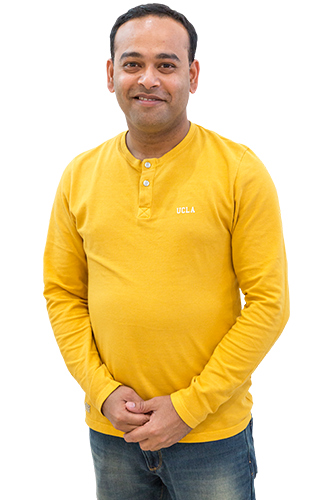
Jekib Ahmed
“During the ten years I was involved in social compliance, I’ve always felt bad about what I was doing. I have seen that social audits do not result in creating a safe working environment. In one of the factories I audited, the workers were even scared to go to the washroom, because there was a supervisor who slashed them with a big power cable if he thought they stayed away too long. We visited many workers in hospital with broken bones. I would report on the abuse. And then the factory would write a corrective action plan. At the next visit, they had on paper how all these changes had been imple- mented. That day the power cable guy would be absent. The workers would keep their mouths shut. And everything would be ‘compliant’. I reported on this guy five years ago, but I know he’s still there. I did about thirty to forty audits per year like that. Then the WE program came my way. And for the first time I experienced that managers and workers can own up to their mistakes or struggles, without having to fear for retribution. Also, the factories got the freedom to decide which problems to tackle and which way is best for them. When I started with WE, I warned a new colleague: ‘Get out of compliance while you can!’ It took me time to restore my belief in what I do. But now I see how the courageous conversations in the factory are making a difference. It gives me an incredible satisfaction.”
‘In essence we are all good people’
|
|
|
|||||
| 00:00 / 00:00 (-00:00) | ||||||
|
|
||||||

Khuyen Nguyen
“There’s continuous struggle in factories. Managers try to control workers, workers don’t feel themselves heard and will find ways to counteract, by becoming slow or making mistakes on purpose. In my experience, there’s a deep barrier between them. They don't see each other as people to collaborate with. When I learned about non-violent communication, about how to identify the human needs under any struggling behaviour, it was an eye-opening experience. It inspired me to pursue my career on a deeper level. I realised that in essence we’re all good people, even though our behaviour can be offensive. Our problem is often that we don’t know how to act differently. This gave me the motivation to have more patience, be more present to other people’s needs and to try to find mutual ground. After working in the business sector for almost 15 years I came to the conclusion that I couldn’t contribute very much to society there. Business is all about profit and not about people. I would be better of working for an NGO. While I was doing my Master’s in International Development in Ireland, I realized I was wrong. Keeping this perspective would only deepen the barrier between social stakeholders. Conflict is everywhere. If we keep thinking of business as something ugly, how can we improve society? I think it’s everyone’s responsibility to be an actor of change. We can’t leave that to government, to NGO’s or to the business sector. So, after finishing my Master’s, I decided to return to the business sector to bring more transformation from within. What motivates me is my believe that people are good. I will keep looking for an approach, for evidence, to show they are.”
‘I know I can be disruptive’
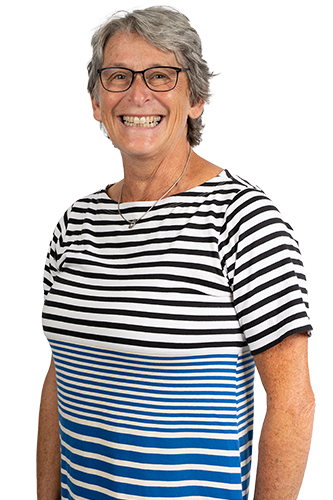
Lily Martens
“Doing a training on Human Systems Dynamics with Glenda Eoyang reminded me of the first time I went scuba diving: that amazing feeling where you think you know the world and then discover a whole new one. Trained as a journalist, inquiry has always been a guiding principle in my work. There is a great value in ‘not knowing’. Knowledge is important and empowering, sure, but it can also become an obstacle that prevents you from asking, from listening and from staying open. I’m pretty good at ‘being there’, to see and sense what’s really happening. Collective learning has become part of the DNA of WE. We know what works today, may not work tomorrow. We’ve seen that happening with Covid. The assumption that you can stick to one plan, one roadmap, is an illusion. That explains our eagerness to probe and work with small adaptive actions. This program deserves the best we can give. Not in terms of solutions we can come up with, but in possibilities we help disclose. I know I can be disruptive and have this tendency to turn things upside down. Part of that has to do with my creative, ever wandering mind – I really think that everything is possible. But it also comes from the fact that I will always challenge hierarchy. I believe in the power of diversity, and I’m convinced that everyone in the room can be of value. I’m much more centred and relaxed these days. My career has been a string of new jobs and new projects I embarked on with great enthusiasm. And now I feel this is exactly where I’m supposed to be. I know what I’m good at and I have a lot to offer to bring out the best in people and give them wings.”
‘Wrong happens not because we are evil’
|
|
|
|||||
| 00:00 / 00:00 (-00:00) | ||||||
|
|
||||||

Moon Mukherjee
India
“I come from a background where helping others has been a constant family value. My grandfather chose to be a doctor in remote, dry and dusty Rajasthan and work at the grassroots rather than pursuing a medical career in the limelight. His clinic was visited by Martin Luther King and for years after that Coretta, his widow, would send my grandparents New Year’s greetings. Every year King’s story would be told to us, grandchildren, which made a big impression. As I spent a considerable part of my childhood with my grandparents, it’s no coincidence that I decided to leave corporate work to take on this line of work. The tipping point for me came when I started working with the Fair Labor Association. I was creating an e-learning programme on the Code of Conduct and Sustainable Compliance and when I started interviewing people around me, I discovered this sort of human rights violations at the workplace almost seemed to be a norm and not an aberration. I became mindful of how much the typical domestic worker, nursing staff, restaurant waiter and petrol station attendant gets paid and is exploited and realized that a large part of it is due to ignorance. I’m convinced that wrong happens not because we are evil, but because we don’t know better. The framework of the WE program gives me direct access to the people whose life I want to impact. The realisation that it is possible to step out of the board room and work at making a real difference to the people that matter makes it very fulfilling. Though the evidence of the impact isn’t always tangible, this program gives me a sense of purpose and helps me reach my vision and quest for a better future.”
‘The WE-concept of courageous conversation happened there and then’
|
|
|
|||||
| 00:00 / 00:00 (-00:00) | ||||||
|
|
||||||
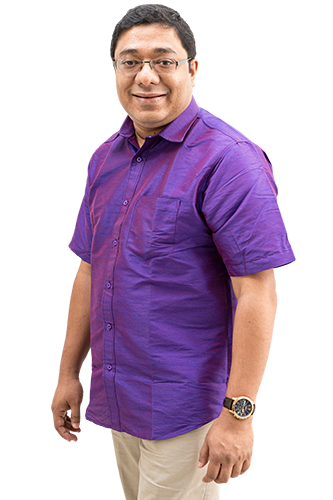
Neel Bhuinya
India & Bangladesh
“One of my most powerful WE-moments was a Forum Theatre-session in Moradabad. Having witnessed the impact of Forum, the factory owner there invited us back to do a full-fledged session on Occupational Health and Safety for the workers of two big factories. When we came back, we explained to our team what Forum is en how it had evolved in the peasant movement in Brazil and Argentina. Although most of these workers are illiterate, they got to the idea. ‘Through this play we can tell about our lives, right?’ We proposed a basic story line from a popular seventies Bollywood movie, knowing it would resonate with our audience. And then we asked them: do you think we can replace this with your stories? In the course of the day, they came up with characters, with dialogues and in the end, we had this beautiful Forum on the hazards of working in the factory and how life changes after an industrial accident. It was staged in front of huge audience: all the workers of two factories, the management, the owners, and their family. In multiple layers, the WE-concept of courageous conversation, happened there and then. The players presented us with the painful truths about this industry. The pressure during work, the hazards, how maintenance is skipped or done at very low cost... What made it so impressive was that the owners and the management, who were sitting right in front of them, did not deny these stories for a moment. They confirmed them, saying: this is our reality. So, after the Forum people could come up with ideas for industry change. I feel proud about the way we initiated changes in these factories and how they sorted out their difficulties afterwards together.”
‘Indirectly we were all involved in this disaster’
|
|
|
|||||
| 00:00 / 00:00 (-00:00) | ||||||
|
|
||||||

Rani Arunduty
“My dad was a renowned Trade Union leader in Bangladesh and a member of Parliament twice. Both my parents inspired me to care for other people. When I went to university, I was involved in student politics and attended all kinds of activist meetings. Things became serious for me after Rana Plaza. I was there in person and saw the huge number of people that had died and so many others buried under the debris. I felt guilty. Indirectly we are all involved in this disaster, I thought. Because we all knew under what circumstances these people had to work and we never protested. I felt I had to do something for them. In my previous jobs I worked on labour issues and political feminism, but there was no room for activism. With WE it’s different. Every time I come home from a Factory Visit, I feel good. By and by we are creating solutions together. To improve human rights, we need everyone involved. Managers can’t do that on their own. And workers can’t do that on their own. Women can’t do that on their own. I was brought up with the idea that women need to be economically solvent. But I think that’s not enough. Women also need to be decision makers in their families and in society. Even though 80% of the workers in our garment sector are women, there is a huge gender gap when it comes to equal pay and equal opportunities. I feel change is here, after Rana Plaza. In the aftermath of the disaster, international stakeholders, including trade unions, discussed the issue and focused on the role that women can play in our economy if they can play a role in policy making to start with. The presence of women in leadership positions is important, not only in numbers. We need women in trade unions, in management positions. This could play a huge role in the economy in the future. Our progress may be slow, but I’m hopeful. Today we did good and tomorrow we’ll do better.”
‘Creating a place where people can share is the first step’
|
|
|
|||||
| 00:00 / 00:00 (-00:00) | ||||||
|
|
||||||

Sabnam Mostari
“My mom is my powerhouse. She was thirteen when she had me. She always says she had to give up her dreams because she couldn’t complete her education. That’s why she was willing to fight for mine. I was the first girl in our family who completed a higher education. I was also the first girl in our village. From a young age I learned I had to fight for my rights as a woman. My wish to go to university was heavily criticized by neighbours and family, but my mom has supported me throughout. So did my younger brother. He left school for me because he wanted me to pursue my dreams. He got a job and gave me my tuition fee. During my first Factory Visit a girl stood up in front of the management, and said she wanted to share her point of view on sexual harassment with other women workers. She said that most of them were harassed but didn’t realise it, because they think only rape or physical violence count as sexual harassment. I felt we needed to go on sharing at that moment. It should not be a taboo. What is sexual harassment? What is sex? When does it become a problem? This girl pointed out to management: ‘If we can create a good environment where workers feel safe, your productivity will be higher. So, this is for your good as well!’ She gave me goosebumps. Look at her, I thought. She is so young, a root level worker, and she has the power to pinpoint exactly what the problem is and why we need to work on it. I believe this is the power of the WE program. Creating a place where people have the opportunity to share is the first step towards change.”
‘Their stories push me to go that extra mile’
|
|
|
|||||
| 00:00 / 00:00 (-00:00) | ||||||
|
|
||||||

Sang Chea
“I grew up in the province, in a Chinese-Cambodian family. A job in the business field would have been the obvious choice, but my parents gave me absolute freedom. What I studied and the field I wanted to work in was up to me. Going to university was a turning point. I was lucky to make many good friends who inspired me to do something different and to be brave. That’s how I found out I really like social work. Talking to workers one on one for our story project made me realise how privileged I am. While I was enjoying high school, they had to go out at a very young age to earn money and support their family. Although they’ve been hit by hardships half of their lives, they don’t give up and still see a brighter future ahead of them. When I think about their stories, it really pushes me to go that extra mile. I cannot change their past. But I can help them to bridge the conversation with their managers, so they may be able to express what they think. And inspire them to have more conversations among themselves. I think the solution is to be found in real dialogue, where workers and managers sit down, listen, and find better solutions together. If these dialogues could be facilitated by the local WE teams, they would even be more effective and sustainable. The way the program operates is unlike any other project I’ve worked for. Normally you work towards a fixed outcome, but here you get space to experiment and stretch your thoughts. We have to test if what we do is influential, if it’s really changing things on the work floor. We may not see the end, but we can enjoy the process more. Because in the process people may already change.”
‘I love this idea of a learning community’
|
|
|
|||||
| 00:00 / 00:00 (-00:00) | ||||||
|
|
||||||
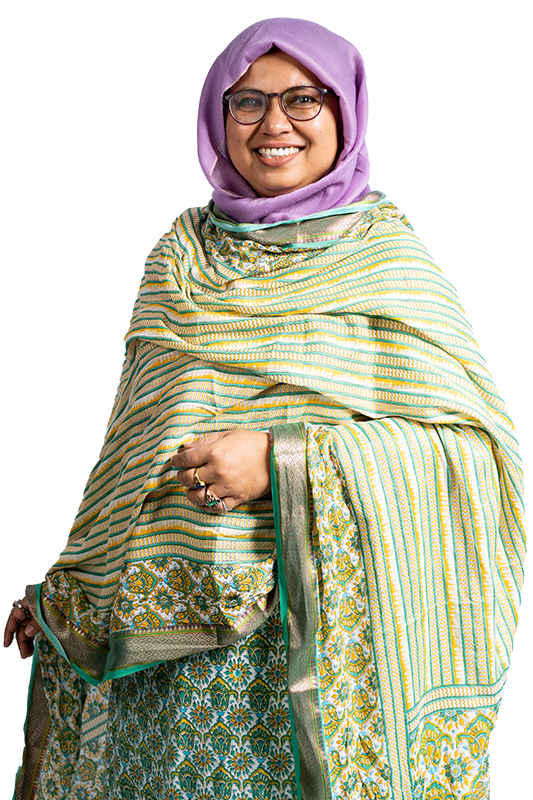
Selima Akhtar
“In previous jobs I had a fixed structure, working from this module or that, but in WE there is no formal structure. We create our own path. We discuss what we want to deliver and how we want to do that. That’s the critical part. As facilitators we all have the same status. We are equally responsible, we can all come up with ideas, no one tells us what we have to do. Within the WE program we have immense freedom. That makes it challenging for me because I’m not used to that. Working in factories is also different. Meanwhile, I really like this idea of a learning community. I started working together with Haider, from team Pakistan. I’m about to do some sessions on financial literacy, using methods I’ve picked up from Moon from team India. And I found a great sparring partner and coach in Jai, also from team India. There’s a lot to learn from each other, there is so much experience in this community! I’m a result-driven person. I’m grounded in reality. When things are logical and possible, I go for it. The Daily Dialogue Walks I’m currently facilitating together with Haider give me energy. The fact that I’m able to touch the life of workers and managers in the factory makes me feel good at the end of the day. Within a couple of weeks, we’ve managed to tackle quality issues that have been nagging the factory again and again. The Daily Dialogue Walks’ main purpose is to create a space and a moment where management listens to workers. In this case one of the female workers pointed out there is always a conflict of interest between the production team and the quality team. Working fast and working faultless don’t go together. By listening to workers’ concerns and insights, we were able to come up with solutions to improve this situation together.”
‘After the diagnose I decided to start my career in civil society NOW’
|
|
|
|||||
| 00:00 / 00:00 (-00:00) | ||||||
|
|
||||||
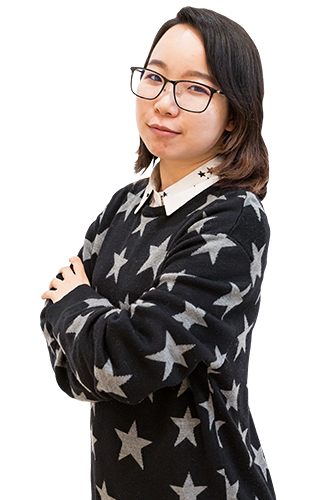
Sheila Wong
“Born and raised in a typical South-Chinese family, I was educated to be practical. So, I majored in economics and finance as most of the good students in China do. Since I also had a great interest in social work and civil society, I thought my career would start with finance and end with charity. All of this changed at a family reunion dinner, when my mother – sitting opposite of me – saw a lump in the front of my neck. Shortly afterwards a doctor diagnosed me with thyroid cancer and sent me to surgery. Life has been very gentle, but not this time. Three months later a sceptical relapse was detected during a check-up. At that moment I was 22 and freshly graduated. Of course, I could have complained: why me? But I didn’t. At that moment I made the decision to start my career in civil society NOW, aiming to change the world, even if it would be just a tiny little bit. By making the choice for this kind of work I said ‘no’ to a lot of obvious career choices. I also had to say ‘no’ to some of my friends, who could not understand why I did this. Does my family appreciate my career choice? At a recent family reunion dinner, I heard my mother explaining to some relatives what I do. She said: ‘My daughter is working in a social enterprise. She is helping the workers to deal with bad wages and the frustrations they have every day. My daughter is doing a good job.’ I don’t know if this is appreciation. It is understanding, which to me is more important.”
‘Joining WE has been where rubber meets the road’
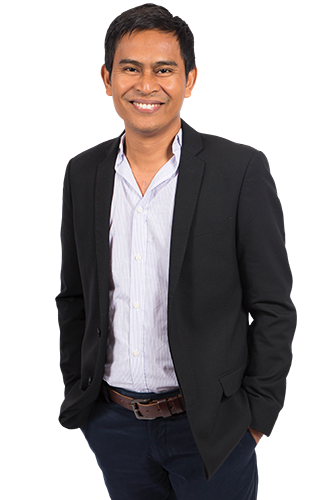
Sothearat Seoung
“I was born on the day Pol Pot came to power. My father, who was a government soldier, fled to a place unknown to us. When I was five, my mother heard he had joined a paramilitary group in the jungle near the Thai border. She took me there to live with him in the paramilitary camp. When I was ten, the fighting escalated badly and we were moved to a big UN refugee camp in Thailand. As the camp was in an open field, it was always hot. Hot walking to school, hot in the hut we lived in. I heard the adults talk about the beautiful rivers and trees of Cambodia. All I wanted, was to go home. The seven years I lived there, felt like a very long time. It has taken me many years and many different jobs and roles to build myself up as a young man, after I came out of the camp. In the camp, there was a lot of abuse. I was insulted and beaten by my father, by my teacher and by kids my age. Cambodia is a very hierarchical society. The education system teaches people to obey. In the factories I often hear Chinese management calling Cambodian workers stupid, because they are so meek. In my work, I dedicate myself to creating a safe space for people to practice asking questions, challenge hierarchy, develop healthy relationships and to grow. Joining WE for me has been ‘where rubber meets the road’. I feel I am doing exactly what I am meant to do. But that doesn’t mean it’s easy. It can really burn.”
‘Distance and indifference cause misunderstanding’
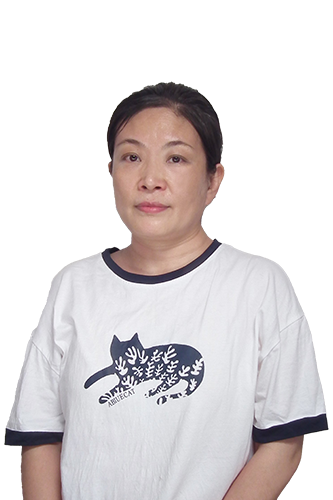
Jing Gao
“We used to have a working class in China with decent payment and dignity, working for state companies. But these days, most workers are migrant workers with a very low sense of self identity and very low wages. Managers don’t respect them. They don’t care about labour relations; they’re focused on increasing production. In fact, many of them would prefer robots, because robots never complain. Working with managers and workers for more than twenty years has taught me how important communication is. Distance and indifference cause misunderstanding. Dialogue, on the other hand, allows people to talk to each other, ask questions and learn. Gradually they can reach understanding and consensus. When I started my first round of Factory Visits, I thought I would have a hard time with the workers' situation and their lack of voice. I was surprised to learn that these very small factories with traditional production methods did not lay off employees during the pandemic and paid them a basic salary even during the shutdown. Although this is required by law, there are not many factories in China that actually do this. I also noticed these small factories offer more humane circumstances. Workers can chat while they work and they have time to take turns between jobs to rest, drink water, or even eat something. Like in other factories, however, there is no mechanism for direct communication between workers and management. The bosses would rather give their employees a bonus at the end of the year than mention the matter of collective bargaining - which often costs less - because collective bargaining means sitting at the same table and negotiating on an equal footing. The vast majority of factory owners is psychologically unable to accept that. I still have a lot to learn and experience, and there is still a long way to go, but there is definitely hope. The knowledge and understanding of the workers are strong and some of them are bold enough to speak up if they are given the opportunity.”
‘I couldn’t give them the courage to raise their voice’
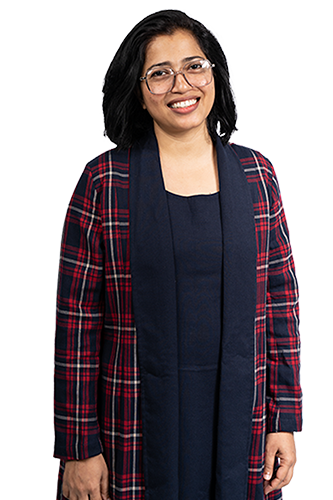
Parvin Akhter
“I got married while I was doing my bachelor’s; it was an arranged marriage. It turned out to be an unhappy marriage as well. I felt totally trapped. It took me a couple of years to find the courage to escape. We had a daughter by then and I kept thinking: I may be able to tolerate this, but I don’t want this life for her. Although my family supported me, they made it clear they were not happy with my decision. I think my fascination with human rights started in that period. By and by I came to understand the concept of rights. There are a lot of rights that I’m entitled to, just by being human. The right to choose for myself, the right to express myself, the right to have an occupation… I found a job and since I’m good at writing, I received an offer from an NGO for a human rights training in South-Korea. I stood first at the exam and then a university offered me a scholarship for a master’s in human rights. The past years I’ve worked with the LGBTQ-community in Bangladesh, with victims of domestic violence and with migrant workers. All these projects made me feel frustrated. I was interviewing people about their daily suffering, reported to my project manager and didn’t have a clue what was done with the information. Were they making action plans? Was there any project to combat this situation? There was no follow-up, which meant I couldn’t give the people I worked with the courage to raise their voice. When I worked with domestic violence victims, I always had separate sessions with the women and sometimes with their husbands or their family. But I never had them all together in one session to let them talk and build a bridge, like we do in WE. That’s the big difference. With WE, for the first time, I feel that something is actually happening because there is dialogue with all involved.”
‘Abuse isn’t always loud or visible — it’s quiet, systemic, and deeply internalised’
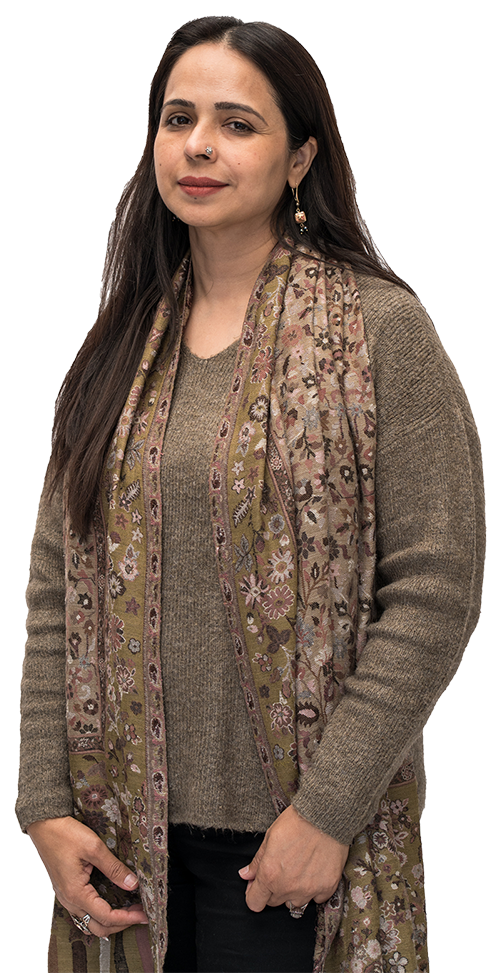
Ayesha
Pakistan
"You must have heard that phrase: the personal is the political. It sums up my journey well. I grew up in the suburbs of Lahore. There were some factories on the outskirts, but it was mostly a rural setup. Living with my grandmother, without siblings or cousins, I was a quiet child, an observer. Amongst the grandmothers around, I would hear whispered stories about women being molested or getting raped while working in the fields. These women were silenced, because it’s a taboo. The blame went on to them. ‘She must have done something to invite it,’ they’d say. I started to notice this imbalance between men and women and began to internalise it, thinking: that’s how it goes.
Being in an abusive marriage for more than fifteen years, reading books and getting more education became my escape. Being denied attending ‘in person’ classes at university, I managed to complete my post-graduate studies nonetheless. I still remember reading A Doll’s House, about a woman being stifled in a patriarchal marriage, and discussing it with my professor. When I said: ‘What’s wrong with that? Being confined and violated happens all the time in our society,’ my professor paused, looked at me, and said: ‘This is abuse.’ That moment was an epiphany, it changed something in me—it gave me a new language to understand what women face every day in our society while internalising abuse. It still took me ten years of my life though, before I dared to spread my wings.
I joined a socialist feminist movement and became a spokesperson for one of Pakistan’s major left-wing political parties. Workers’ rights became my passion. I kept my gender lens sharp, because the sexual harassment in factories is horrific. Being an outsider and trying to do something about these problems is a challenge though, because workers - women and men - have internalised the power system.
In the WE program we have this Magic Wand exercise, where we ask workers: ‘If you could make a wish, what would you change in your factory? Initially many of them would say: ‘Nothing, we are good with what we have’. Only after some encouragement, they start to think about things that could make their lives a little better: clean drinking water, two fans instead of one, better bread in the canteen. The most beautiful part is the shimmer in their eyes, that gleam of hope I see when they hold that magic wand. In a lot of factories, the abuse isn’t always loud or visible - it’s quiet, systemic, and deeply internalised. I’ve seen workers, women especially, who don’t even realise they have the right to ask for more.
As facilitators, we’re not there to disrupt or impose. We create space. We listen. We open room for workers to reflect, speak, imagine. We’re not a threat to the brand, the factory management, or the worker. We’re just there to plant the idea and give them the experience that things can be different.”
‘This work is not just about change in the factories we visit’
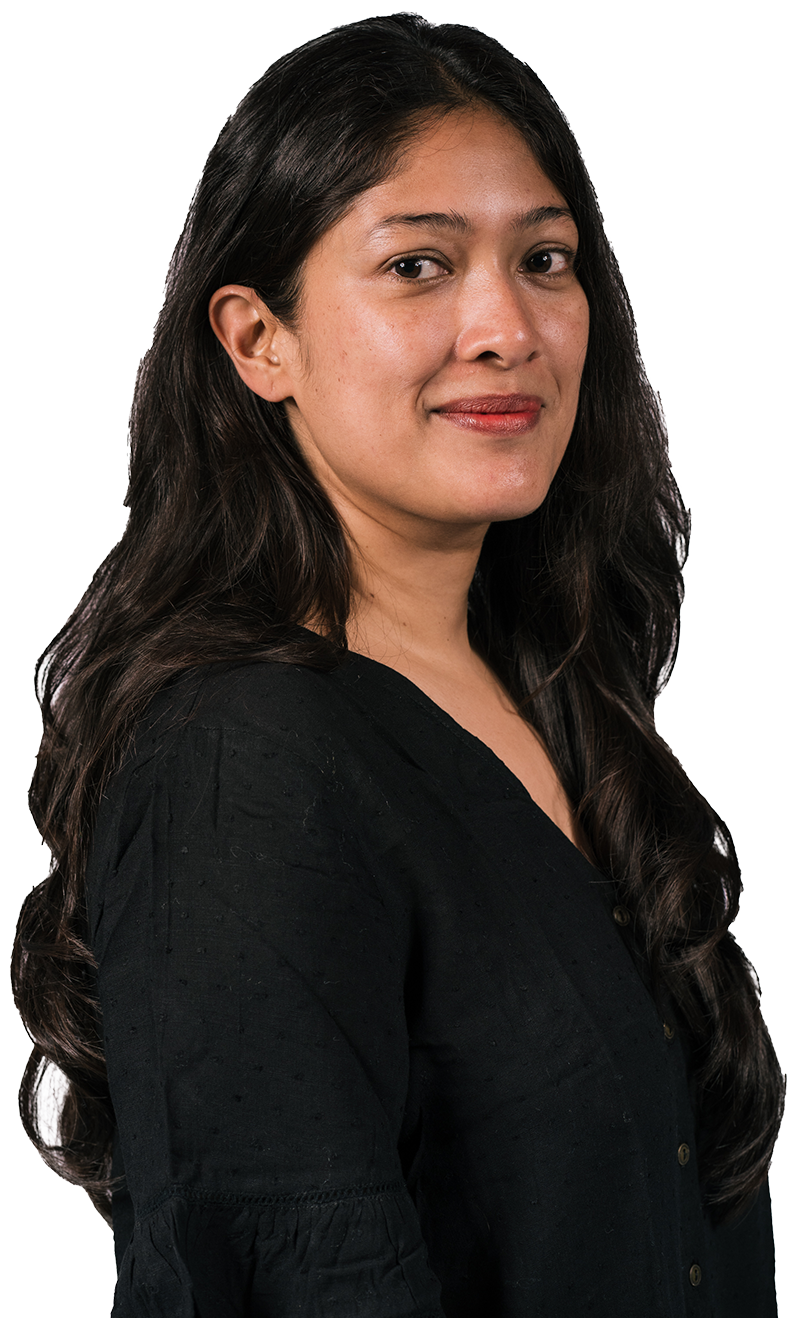
Chayanika
India
“Until I applied for the WE program I had not spent a lot of thought about why I picked up this line of work. In India, where everybody wants to be an engineer or a doctor, it was not the obvious choice to do a master’s in childhood studies and start working in this industry. Tracing back, it all made sense. We’re the sum total of our experiences and my childhood played a significant part in that.
Both my grandparents were well-known social reformists in the region where we lived. My grandfather was a big Gandhian, his entire life philosophy was based on Gandhi’s teachings. A lot of revolutionary leaders used to visit my grandparents and as a kid I sat there and watched them. Subconsciously I must have absorbed a lot of those discussions about equality and the Indian caste system.
Working for both NGO’s and brands has given me an interesting perspective of the sustainability sector from all sides. When I speak about human rights, I know what is possible, instead of just saying: this is right, that is wrong, and this is what needs to be done. I’ve learned to be more accepting and patient, and less judgmental. I take no shame in saying that I'm still frustrated, though. I think that comes from a place of passion. I always tell my colleagues: ‘The day I start saying: ‘This is how it goes, you need to accept it’, I think I’m dead as a professional’.
What makes it worth it? A couple of years ago, I would have said: ‘I’m not sure. I'm trying to figure it out and maybe it’s just a job I’m doing’. But that has changed. I know now that this work is not just about change in the factories we visit. Our stakeholders are the entire society, because we are trying to change the fabric of society. There’s sexual harassment in the factory because it also exists out of the factory. There’s gender inequality because that runs throughout our society.
Whatever the topics we’re working on, in the end it’s about the mindset. It’s not about the lack of emergency exits or non-payment of overtime wage. There’s no emergency exit because the person in charge thinks it’s not required; the overtime wage is not paid because the buyer believes it is supplier's responsibility and vice versa. That’s the mindset – a mindset of avoidance, lack of responsibility... We have to fight that and that’s a tough job because it’s been like that forever, it’s engrained in our thinking.
The people we work with will remember what we've discussed. They will go home. They’ll talk about it with others. Maybe they pick it up unconsciously, just like I picked up so many things from my grandparents. What really makes it worth for me is that I feel that I contribute back to society by bits and pieces of whatever I believe can be done.”
‘When we start taking responsibility, that’s when it happens’
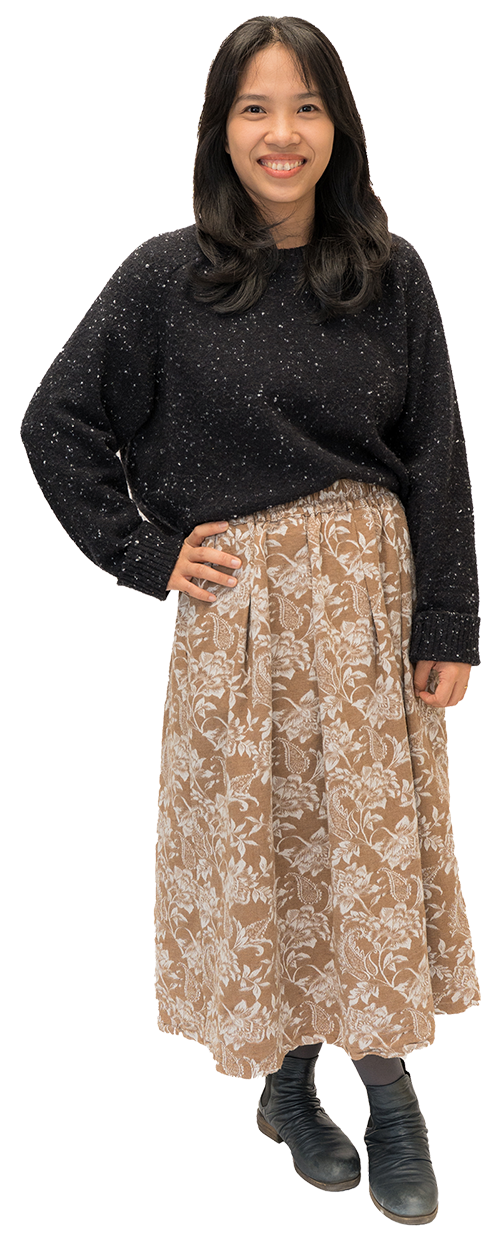
Ellie
Vietnam
“Before joining WE in 2017 I was pretty lost. I had dropped out from two universities within in four years’ time. I worked as an English teacher for some time and after that I did office work in sales and marketing. I couldn’t find fulfillment in whatever I was doing. And then I came across facilitation. And fell in love. I found all the missing pieces in this work: creativity, purpose, and the possibility to make a change. It was hard to get to know the program, to grasp the complexity of it. And sometimes I felt looked down upon by factory managers, especially the older ones, because I was young and female. It was a lot: doing this work and trying to gain the respect of these people. After a couple of years, I quit. When I rejoined a few years later I felt so much more at ease. I think I’ve grown and found the right balance to do the job without caring too much about someone else’s opinion. I’ve learned this through karma yoga: doing good deeds without expecting anything back. It has liberated me from a lot of pressure. Part of our work still has to do with gaining the management’s trust and getting them on board. But I don’t take it personal anymore. One of the first things I learned as a facilitator is that real change starts within yourself. That helps me to stay sane. We cannot change others. But we can change ourselves and hopefully that ripples out. The biggest change I see in this program is the awareness among workers about the impact they can have themselves. The moment we start taking responsibility: that’s when it happens.”
‘It’s not about having the answers, but asking the questions’
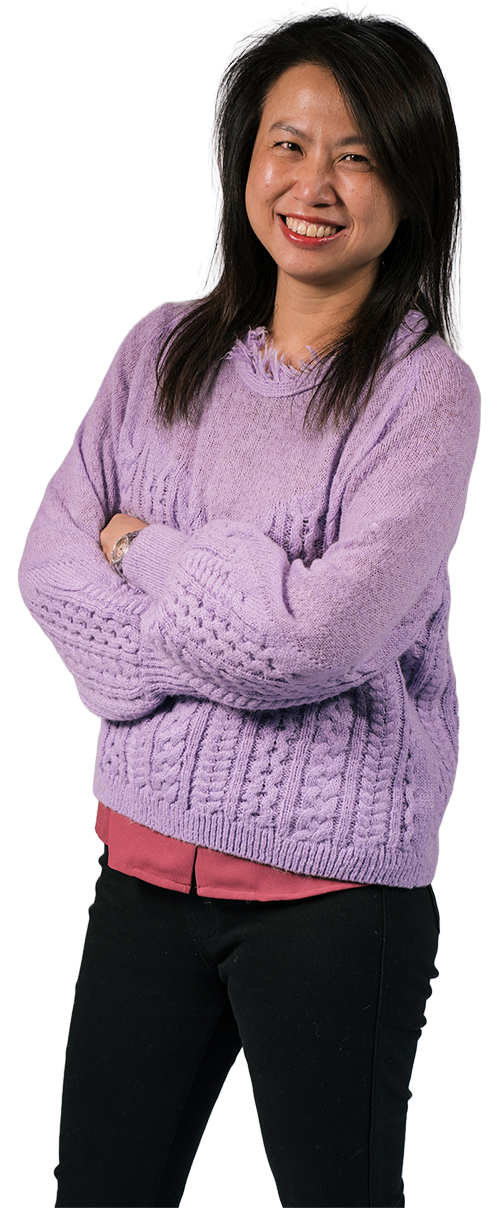
Gladys
China
“When I visited factories as an auditor, the harsh working conditions always made me think of my mother. She was a seamstress, working from home when I was a little girl. I would sit next to her, helping her cut the fabrics or holding them when she was at her machine. And then she would tell me about the time she worked in a factory when she was young. How hard it was, because no one helped her, and she had to teach herself how to sew by looking at the others. And how her fingers hurt at the end of the day. I’ve worked in Corporate Social Responsibility (CSR) for my entire career. I started as an auditor, doing the checking-thing, but with all the brands I worked for, CSR felt like a talk-show. No one really bothered about the systemic changes for non-compliance issues. A short term fix after the audit would do the job. My work felt meaningless and was sucking the energy out of me. When I heard about the WE program and read about the dialogue approach, this gave me hope. I joined Tchibo’s Corporate Responsibility-team shortly after. I remember visiting a factory last year where they make rainboots. In between activities I went to the floor to talk with some of the workers. I noticed a young woman pasting glue to the soles of the boots and walked up to her. The smell of chemicals in her workstation was overwhelming; I cannot begin to describe how penetrating it was. Standing next to her, I said: ‘How are you? How are your working conditions?’ And she just kept silent, ignoring my questions, and pretending I’m not there. I asked her a second time how she was doing. And then she looked around, left and right, to see if anyone was watching and she said: ‘You can smell it.’ Later that day, during the Factory Visit, we sat in a circle. We talked about health and safety issues and asked workers if there’s anything they would like to improve in their factory. The factory manager, who was also present, said there was no need to answer that question. ‘The working conditions in our factory are very good.’ I looked at the workers’ faces, they were all so silent. And I decided to use a metaphor. ‘Think about when you don’t feel well, and you go to the doctor. If you want to get healed, you need to be honest and say what’s wrong. We’re here in your factory today and we see symptoms of things that are not okay. Are you willing to be honest with us so we can work together to find a solution to improve your working conditions?’ I could feel the shift after these words, the realisation that the WE program is not there for the brand’s needs, but for them. Real change on the work floor is a question mark. It’s not about having the answers but asking the questions. And that’s exactly what was calling me. So, after many years in the CSR department, I took a drastic step. I wanted to go back to the factory floor and applied as a facilitator for team China. That meant giving up a secure monthly income and other benefits, but it’s totally worth it. I think I can bring a lot to the job. I know how brands look at their suppliers and how they set the standards. On the management level and the owner’s level, I know how they think and act to fulfil the client’s needs. Knowing both sides very well, I can build bridges and at the very least make them understand each other better.”
‘WE is all about learning together, supporting one another and creating new ways’
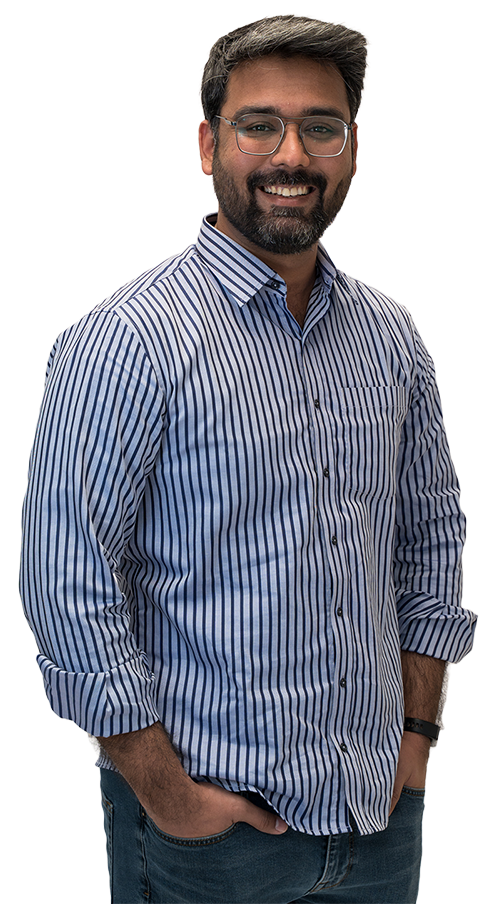
Saad
Pakistan
“For the past seven and a half years, I worked in a large textile factory. I started as a coordinator in operations, but I spent most of that time in the CSR department. It was a roller coaster with Covid, post-Covid struggles, and natural disasters like the flooding in Pakistan in 2022. There was so much happening, but I really enjoyed the work; I love meeting new people and hearing their stories. The stories you encounter in our industry are sometimes inspiring, but more often they make you feel horrible about the situations people are living in and how they manage their day-to-day needs. That’s exactly what made me stay. The dynamics of the CSR department were perfect for me, because I thrive in a challenging environment. After several years though, I felt my learning curve was slowing down. I started looking for a shift, but I didn’t want to move to a place that would be less than the factory I was in. It is one of the leading textile factories in Pakistan when it comes to CSR and human rights. And then one day, someone from WE reached out and said they thought I would be a good addition to their team in Pakistan. Joining the WE program was like a cultural shock in the beginning. I soon found out not every workplace is as well managed as compared to the factory I came from. But that also showed me how important our work is. When we visit factories, we go regularly - every two months. Still, workers say to us: ‘You should come every month.’ They see us as people who help them create a better working environment and the way we do that, including everyone in the conversation, makes them feel valued. What makes WE different is that it’s a true learning community. Whenever you want to learn something, there’s always someone there for you and that’s amazing. Moon from team India, who also has a role as learning booster, recently reached out and said, ‘Saad, let’s have a call.’ We spoke for about an hour - she shared her experiences with Pakistani factories and gave me guidance. In corporate environments, you’re on your own. But here, people are constantly checking in: ‘Are you okay? Do you need help?’ I was told my first International Training Conference with WE would be overwhelming, but from day one I felt very comfortable. The storytelling sessions especially stood out to me. Everyone brings a different perspective, a different lens. When you work together on stories like that, you find many new possibilities you might not have seen before. That is what excites me about being here. WE is not just about monitoring conditions in factories. It’s about learning together, supporting one another, and creating new ways to make workplaces better for all the people who work there.”
‘I knew it wouldn’t be a bed of roses’
Taher
Bangladesh
“Just months after the student uprising in July 2024, I joined the WE program. Since then, our country has faced nationwide strikes, violence, inflation, currency depreciation and ongoing economic strain. The political instability has impacted our industry deeply, which we witness firsthand during our factory visits. Factories that were previously stable are now challenging. In one of them salaries are being paid irregularly; in another we’ve seen riots and violence both outside and within the factory premises. Overall, there is a strong sense of frustration among people. When I began this work, I knew it wouldn’t be a bed of roses. Fortunately, the support I receive from my colleagues in Bangladesh has been invaluable. They have years of experience in this industry and can offer deep insights. I also have regular calls and sensemaking sessions with colleagues from other WE countries to reflect on the complex Bangladeshi context. Cross-country collaboration was new to me, but I’ve found my way and learned so much through it. Earlier this year, our team facilitated a special workshop with senior management representatives from 15 WE factories in Bangladesh. We designed and facilitated together with colleagues from India, Pakistan and the Netherlands. The intensive preparation for the workshop gave me a lot of insight into the programme’s dynamics and the commitment of my colleagues. The discussions we had during the workshop were raw and real - people talked, cried, laughed, argued, and eventually found common ground. Our conversations were deeply personal and enriching, something I’ve missed in previous jobs. I feel like I’m in the right place now and carry that experience with me. Inquiry is a core principle in the WE programme. When we take the time to engage with others, listen to different perspectives, stay open and look for collective learning and possibilities, the way forward may be completely different, more effective and sustainable than what we imagined in the beginning.”



